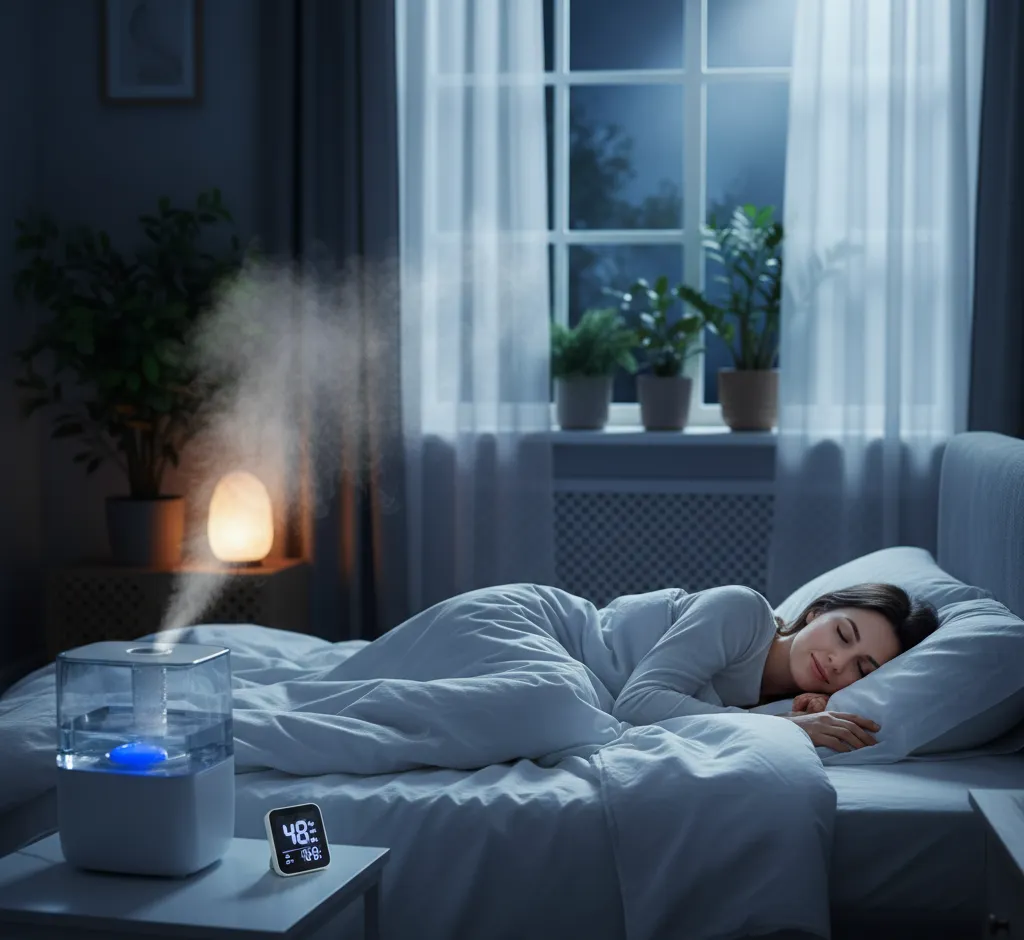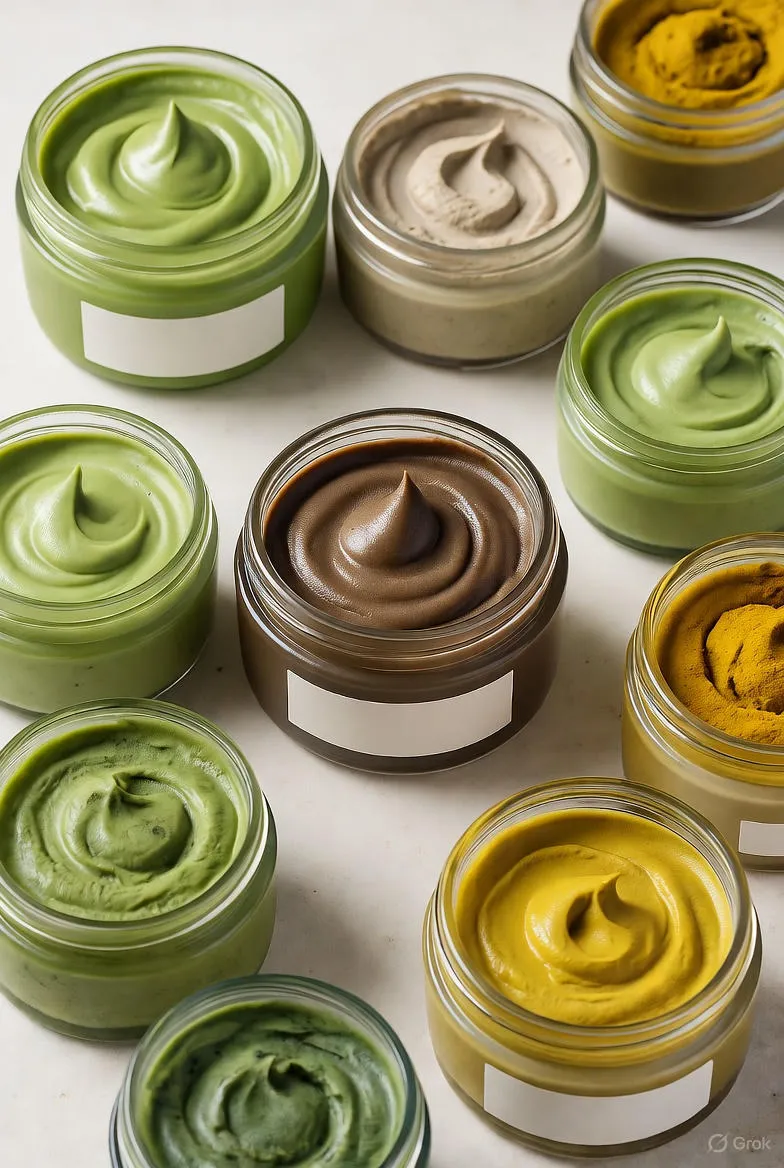The Unseen Comfort: Why Humidity is Crucial for Optimal Nighttime Rest
Discover why optimal humidity (40-60% RH) is essential for high-quality nighttime rest, preventing respiratory issues, skin dryness, and allergy triggers. Learn practical tips to balance your bedroom air for better sleep health.

💤 The Critical Balance: Understanding Nighttime Humidity
When optimizing your sleep environment, factors like mattress firmness, blackout curtains, and room temperature often take center stage. Yet, there’s an often-overlooked environmental element that plays a profoundly critical role in the quality of your rest: **humidity**. The level of moisture in the air while you sleep can be the difference between a night of deep, restorative rest and one plagued by discomfort, interrupted breathing, and morning dryness.
Understanding **why humidity matters during nighttime rest** is essential for anyone seeking to achieve peak sleep health. It's not just about comfort; it's about the fundamental biological processes that occur while you're asleep, processes that are significantly impacted by the air you breathe.
💧 The Ideal Range: Finding Your Sleep Sweet Spot
Experts generally agree that the ideal relative humidity (RH) for sleeping is between **40% and 60%**. This range strikes a delicate balance:
- **Below 40% (Too Dry):** Can lead to discomfort, increased risk of illness, and skin irritation.
- **Above 60% (Too Humid):** Can encourage mold and dust mite growth, trigger allergies, and feel stifling.
Maintaining this 'sweet spot' is the key to creating an environment that supports your body’s natural rest cycle.
🌬️ The Dangers of Low Humidity During Sleep
Dry air is perhaps the most common humidity-related sleep disruptor, especially during colder months when heating systems dry out indoor air. Low humidity presents several significant challenges to the sleeping body:
1. Respiratory System Distress
Your nasal passages and throat are lined with **mucous membranes** designed to filter the air and defend against pathogens. When the air is too dry, these membranes:
- **Dry Out:** This compromises their ability to trap viruses, bacteria, and dust, making you more susceptible to colds and flu.
- **Produce Less Mucus:** The body compensates by producing thicker, stickier mucus, leading to congestion, a dry cough, and sinus pain.
The result is often snoring, disrupted breathing, and waking up with a sore throat or dry nasal passages.
2. Skin and Hair Issues
The skin is a major organ, and it requires moisture to maintain its barrier function. Low humidity effectively pulls moisture from your skin and hair, leading to:
- **Dry, Itchy Skin:** This can exacerbate conditions like eczema and psoriasis, causing restlessness and waking.
- **Chapped Lips:** A common and uncomfortable symptom of extremely dry air.
- **Brittle Hair:** Dry air can strip the natural oils from your hair, making it prone to breakage.
3. Impact on Snoring and Sleep Apnea
Dry air can worsen snoring and even complicate conditions like obstructive sleep apnea (OSA). A dry nasal passage creates more friction during breathing, leading to louder, more frequent snoring. For individuals using a **CPAP machine**, low humidity can cause a phenomenon called 'rainout' or, more commonly, dry mouth and throat, leading to non-compliance with the crucial therapy.
☁️ The Pitfalls of High Humidity During Sleep
While dry air poses clear problems, excessively high humidity also has a negative impact on sleep quality and the bedroom environment.
1. Disruption of Thermoregulation
A key to falling and staying asleep is a slight drop in core body temperature. High humidity hinders the body’s ability to cool down effectively. When the air is saturated with moisture, **sweat cannot evaporate efficiently**. This lack of evaporative cooling causes you to feel hotter and stickier, disrupting the thermoregulatory process necessary for deep sleep.
2. The Allergen Hot Zone
High relative humidity provides the perfect breeding ground for common indoor allergens and irritants:
- **Dust Mites:** Thrive in RH levels above 60%.
- **Mold and Mildew:** Rapidly grow on surfaces like walls, bedding, and carpet in overly moist conditions.
For allergy and asthma sufferers, sleeping in a high-humidity environment can trigger nighttime symptoms (coughing, wheezing, sneezing), leading to fragmented and poor-quality sleep.
🛠️ Practical Steps to Control Bedroom Humidity
Taking control of your bedroom's humidity level is an achievable goal that can dramatically improve your sleep health. Start by measuring the current level with an inexpensive **hygrometer**.
To Increase Humidity (Combat Dry Air):
- **Use a Humidifier:** A **cool-mist or warm-mist humidifier** is the most effective solution. Always use distilled water and clean the unit regularly to prevent mold and mineral buildup.
- **Place Water Bowls:** For a low-tech solution, place shallow bowls of water near heating vents to allow natural evaporation.
To Decrease Humidity (Combat Moist Air):
- **Use a Dehumidifier:** An electronic dehumidifier will actively pull excess moisture from the air, especially in basements or coastal areas.
- **Improve Ventilation:** Ensure the room is adequately ventilated. Consider running an exhaust fan after a shower if your bedroom is near the bathroom, and use air conditioning, which naturally dehumidifies the air.
🎯 Conclusion: Prioritizing Environmental Sleep Hygiene
Optimal sleep is a complex equation, and while factors like diet, exercise, and light exposure are critical, the **humidity of your bedroom air** is an often-forgotten variable that can make or break your nightly rest. By consciously managing the moisture content in your air to keep it within the ideal 40%–60% range, you protect your respiratory system, soothe your skin, and ensure your body can properly regulate its temperature. This proactive step toward environmental sleep hygiene can lead to deeper, more comfortable, and truly restorative sleep.


